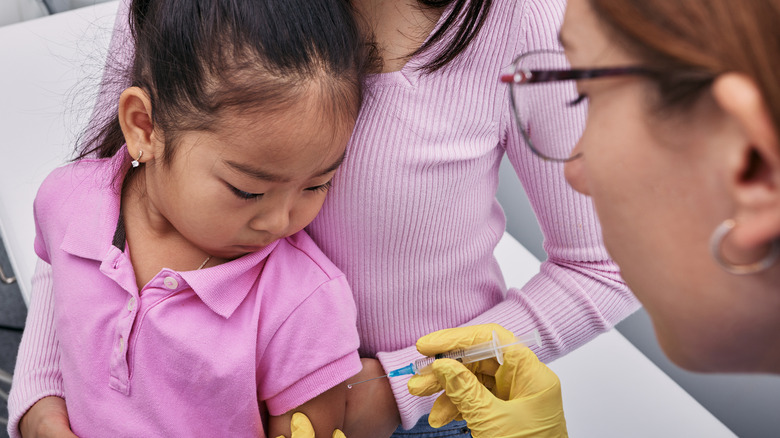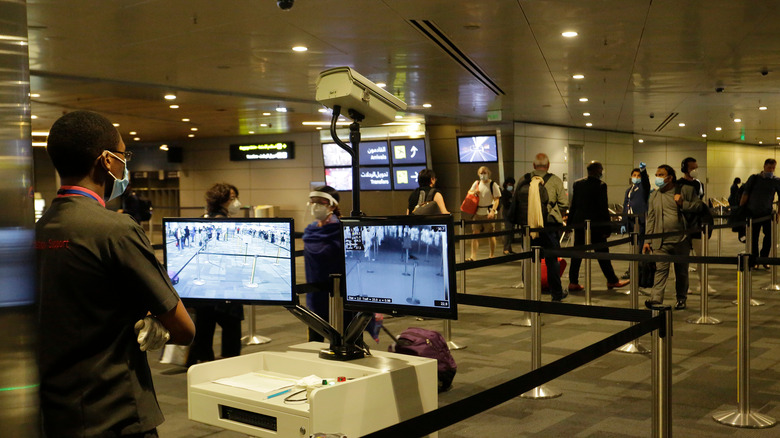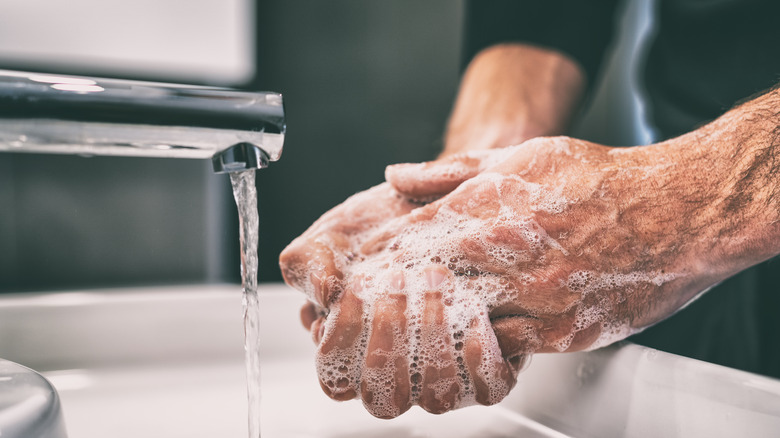Infectious Disease Expert Weighs In On Whether A Polio Epidemic Can Happen Again
Having emerged from the height of the COVID-19 and mpox outbreaks, it's left some of us with questions regarding what other diseases may have the potential to return in the future. Sarah Y. Park, MD, FAAP, FPIDS is the Medical Director of Medical Affairs, Karius and a pediatric infectious disease physician with long experience in public health epidemiology — including being a former STOP consultant. Health Digest spoke with Dr. Park to ask if a repeat of the polio epidemic is at all possible.
"Widespread disease in the form of a polio epidemic is not likely to occur in the United States or countries with generally high polio vaccination coverage, but would be more likely in countries or regions with low vaccination rates or no vaccination coverage," Dr. Park states, referencing a recent press statement from the World Health Organization (WHO).
"However, outbreaks can occur in areas where there may be groups of unvaccinated or undervaccinated people — including those who refused to get vaccinated or delayed or missed their vaccinations." Dr. Park emphasizes that the problem of vaccination delay has been further exacerbated as a result of COVID-19. "Delay is an ongoing concern in the United States, as pediatricians work to catch up with many children who missed their regular vaccinations because of the pandemic."
Who is most at risk for severe cases of polio infection?
Dr. Park goes on to tell Health Digest the ways in which one can become infected by the poliovirus. "Polio is transmitted via person-to-person usually via the fecal-oral route, or possibly via contaminated food or water," Dr. Park explains. She highlights those who are most vulnerable to severe cases of polio infection in particular. "Those who are immunocompromised are especially at risk for severe and life-threatening disease, and while they can be vaccinated with the inactivated polio vaccine (IPV), their bodies may not be able to produce sufficient protection because of their underlying disease," she says. "Therefore, it's even more important that those of us who are healthy get fully vaccinated to protect us as well as those at high risk."
"All it takes is one infected traveler to introduce the virus into such a community. Vaccination is the best and most effective method of prevention," she emphasizes. However, Dr. Park notes there are various healthcare, societal, and environmental barriers that pose challenges to vaccination in certain countries.
Barriers to vaccine access and preventative measures
"Vaccine access issues due to limited vaccine availability or accessibility, natural or manmade disasters, and economic inequalities or misinformation leading to vaccine refusals have resulted in pockets of areas where the polio virus has been circulating, presenting an ongoing risk from this otherwise eradicable disease," Dr. Park explains.
Dr. Park goes on to identify more specific influencing factors. "Globally, challenges with access to clean water, uncontaminated and adequately cooked food, and proper sanitation are key reasons why this virus is still circulating in parts of the world." As a result, she emphasizes the importance of these basic needs being met around the globe in order to reduce the risk of infection.
Concluding the interview, Dr. Park reiterates the importance of vaccination and notes how practicing regular hand hygiene can go a long way. "Pockets of areas with low or no vaccination increase risk for this virus," she says. "For these reasons, it's very important to remember that hand washing is always a key first step in preventing any infection."



